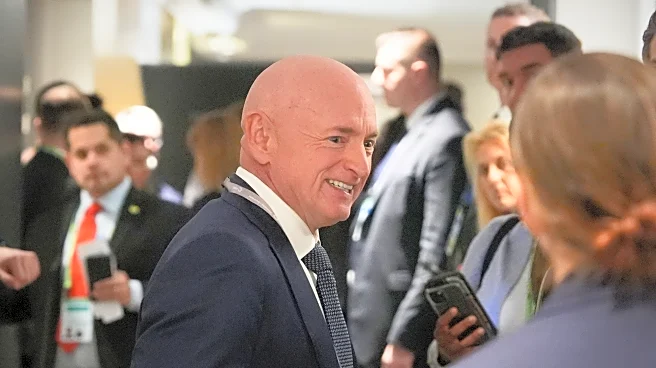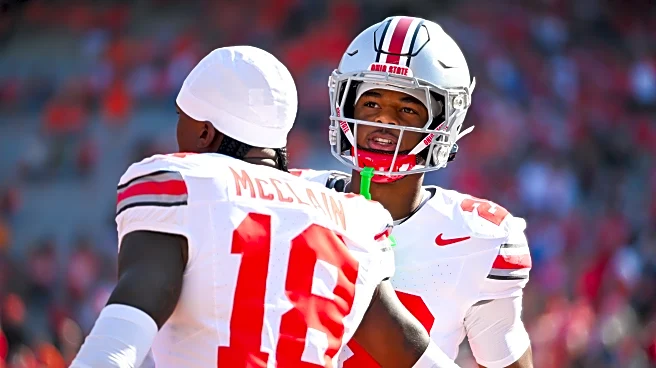What's Happening?
Kilmar Abrego Garcia, a 30-year-old native of El Salvador, has been transferred to the Moshannon Valley Processing Center in Phillipsburg, Pennsylvania, according to his attorneys. This move comes as part
of his ongoing human smuggling case in Tennessee. Previously held at the Farmville Detention Center in Virginia, the transfer was reportedly intended to provide his legal team with better access to him. However, his attorneys have expressed doubts about the ease of access, citing logistical challenges for defense team members based in Nashville and New York. Concerns have also been raised about the conditions at Moshannon, including reports of inadequate medical care and insufficient food. Abrego Garcia faces charges of conspiracy to transport aliens and unlawful transportation of undocumented migrants, with allegations linking him to the gang MS-13, which his family denies.
Why It's Important?
The transfer of Kilmar Abrego Garcia to a new detention center highlights ongoing issues within the U.S. immigration detention system, including access to legal representation and detainee welfare. The case underscores the complexities of handling human smuggling charges, especially when linked to organized crime allegations. The legal proceedings could impact U.S. immigration policy and enforcement practices, particularly concerning the treatment of detainees and the conditions within detention facilities. The outcome of this case may influence future legal strategies and policy decisions regarding immigration enforcement and detainee rights.
What's Next?
Abrego Garcia's legal team is expected to update the court on his access to counsel and ability to prepare for trial at the new facility. The case will continue to unfold as his attorneys navigate the challenges posed by the transfer and detention conditions. The court's decisions on these matters could set precedents for how similar cases are handled in the future, potentially affecting the broader legal landscape for immigration-related offenses. Stakeholders, including immigration advocates and policymakers, will likely monitor the case closely for implications on detention practices and legal access.
Beyond the Headlines
The transfer and detention conditions raise ethical questions about the treatment of detainees within the U.S. immigration system. Reports of inadequate care and difficult access to legal representation highlight potential human rights concerns. This case may prompt discussions on the need for reforms in detention practices, emphasizing the balance between enforcement and humane treatment. Long-term shifts in policy could emerge from the scrutiny of this case, influencing how the U.S. addresses immigration and detention issues.










